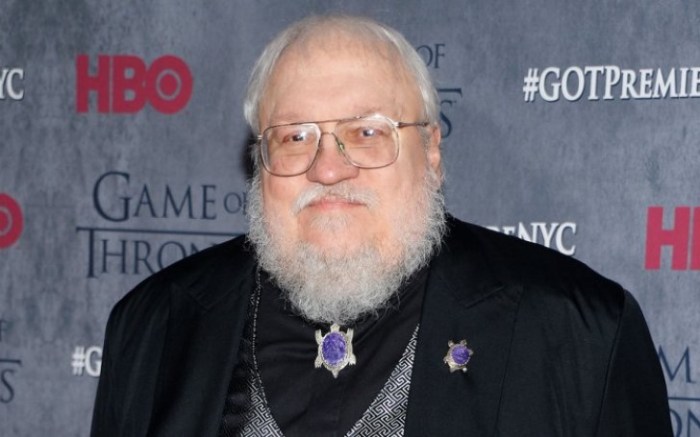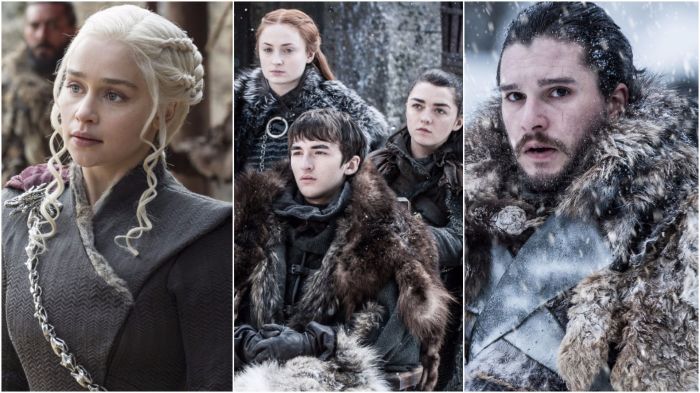Game of Thrones ending different books? Yeah, the show and the books went wildly different directions. We’re diving deep into the major plot divergences, character arc shifts, and the wildly varying fan reactions to both the show’s final season and the (still unfinished) book series’ anticipated conclusion. Prepare for a rollercoaster of dragons, betrayals, and a whole lot of “what ifs.” Get ready to unpack the epic differences between the on-screen spectacle and George R.R. Martin’s written word.
From Daenerys’s descent into madness to Jon Snow’s ultimate fate, we’ll dissect the key changes and explore the creative choices that led to such dramatically different outcomes. We’ll analyze the impact of these changes on the overall narrative, the emotional resonance of each ending, and the fervent debates ignited within the fandom. Get ready for a deep dive into the world of Westeros – the way it was *meant* to be, and the way it *became*.
Fan Reactions and Interpretations of the Divergent Endings: Game Of Thrones Ending Different Books
The diverging conclusions of *A Song of Ice and Fire* and its television adaptation, *Game of Thrones*, sparked a firestorm of debate among fans. The passionate engagement with the source material, coupled with the show’s significant deviations, resulted in a wide spectrum of reactions, ranging from ecstatic approval to utter condemnation. Analyzing these responses reveals fascinating insights into how readers and viewers interpret narrative choices and engage with fictional worlds.
The differing endings created a unique situation where the same basic story ended in drastically different ways, allowing for a deeper analysis of how personal interpretations can shape one’s overall experience. The show’s controversial final season, in particular, fueled intense discussions and debates across various online platforms, highlighting the power of audience engagement and the enduring legacy of the *Game of Thrones* saga.
Categorizing Fan Reactions
Fan reactions to the divergent endings can be broadly categorized into positive, negative, and ambivalent groups. Positive reactions often stemmed from appreciation for the show’s streamlined narrative, or the perceived emotional resonance of certain character arcs, even if they diverged significantly from the books. Conversely, negative reactions frequently centered on feelings of betrayal, stemming from perceived inconsistencies with established characterizations and plot lines from the books, or a sense that the show’s ending undermined the complexities and nuances of Martin’s work. Ambivalent reactions, perhaps the most prevalent, reflected a complex mix of appreciation for certain aspects of both conclusions while simultaneously expressing dissatisfaction with others. Many fans appreciated certain aspects of the show’s ending while still holding a strong preference for the (still unfinished) book series.
Diverse Interpretations and Their Influence
Different interpretations of the source material heavily influenced fan responses. For instance, those who prioritized character development above all else might have found satisfaction in the show’s final season, even if plot points were altered. Conversely, readers who focused on the intricate political machinations and prophecies of the books often expressed deep disappointment with the show’s perceived simplification of these elements. The show’s pacing, significantly faster than the books, also contributed to differing interpretations. Some fans appreciated the quicker resolution, while others felt it lacked the depth and detail that made the books so compelling. This disparity in pacing further amplified the divergence in fan reactions.
Fan Theories: Books vs. Show
The following table illustrates contrasting fan theories about the book ending and how they relate to the show’s conclusion:
| Theory | Book Relevance | Show Relevance | Fan Response Summary |
|---|---|---|---|
| Daenerys Targaryen’s ultimate fate | Ambiguous; potential for either redemption or descent into tyranny is heavily hinted at, with clues pointing towards both possibilities. | Depicts her as a tyrannical ruler who is ultimately defeated and killed. | Mixed; some found the show’s depiction satisfying, while others felt it betrayed her complex character and the potential for a more nuanced conclusion. |
| Jon Snow’s role in the future | His parentage and potential claim to the Iron Throne remain central unresolved questions. | He is exiled to the Night’s Watch, effectively removing him from power. | Mostly negative; many felt the show’s resolution was unsatisfying and lacked the epic scope implied by the books. |
| The ultimate fate of Westeros | Uncertain; Martin has hinted at potential for continued political upheaval and social change. | Bran Stark becomes king, suggesting a more stable, if somewhat less exciting, future. | Highly divisive; some found Bran’s ascension a clever and fitting conclusion, while others saw it as an anticlimactic and unexpected choice. |
| The true meaning of prophecies | Numerous prophecies remain open to interpretation, with multiple possible fulfillments. | Several prophecies are fulfilled in ways that differ from the more ambiguous implications of the books. | Varied; some appreciated the show’s clearer resolutions, while others felt that the show’s interpretations simplified and diminished the complexities of the prophecies. |
Speculative Endings
George R.R. Martin’s *A Song of Ice and Fire* left many readers yearning for a satisfying conclusion, a desire the HBO adaptation arguably failed to deliver. This leaves ample room for speculation: what if the narrative had unfolded differently? What if certain character arcs had taken a different path? Let’s explore a hypothetical alternative ending, blending elements from both the books and the show, aiming for a resolution that feels both earned and emotionally resonant.
This alternative ending would shift the focus away from a singular “winner” of the Iron Throne, instead emphasizing the collaborative effort needed to rebuild Westeros after years of devastating conflict. It draws inspiration from the books’ nuanced character development and the show’s more action-oriented plot progression, attempting to bridge the gap between the two.
Alternative Ending: A Council of Regency, Game of thrones ending different books
In this version, Daenerys Targaryen’s descent into madness is averted. Tyrion Lannister, acting as her Hand, manages to steer her away from the path of destruction, emphasizing the importance of diplomacy and rebuilding rather than conquest. Jon Snow, revealed as Aegon Targaryen, chooses not to claim the throne, recognizing the inherent instability of such a power struggle. Instead, a council of regency is formed, comprising representatives from the major houses, including Tyrion, Jon, Brienne of Tarth, and Sansa Stark. This council would oversee the rebuilding of Westeros, focusing on addressing the immediate needs of the people, establishing fair laws, and promoting unity amongst the disparate regions. Cersei Lannister’s demise occurs in a less spectacular manner; she is captured and imprisoned, her reign of terror ending not with a dramatic explosion, but with a quiet, ignominious defeat. The Night King’s defeat remains largely unchanged, serving as a catalyst for the realization that internal conflicts are far more destructive than external threats. Arya Stark, instead of wandering off to explore unknown lands, uses her skills to serve as a protector of the realm, a silent guardian working within the council’s framework.
Character Arc Changes
Several key character arcs would undergo significant alterations. Daenerys’s arc would move away from tyrannical rule and towards a more mature and compassionate leadership style, guided by Tyrion’s counsel. Jon’s arc would emphasize his commitment to peace and justice, rejecting the allure of power for the greater good. Sansa’s arc would focus on her political acumen, solidifying her role as a powerful and influential leader within the council. Arya’s arc would find her using her skills to serve the realm rather than pursuing personal vengeance. Bran’s role as the Three-Eyed Raven remains largely unchanged, but his influence is subtle and indirect, guiding the council’s decisions through cryptic pronouncements and visions.
Resolution of Narrative Conflicts
This ending resolves the central conflict not through conquest but through compromise and collaboration. The power struggle for the Iron Throne is replaced by a collaborative effort to rebuild a shattered kingdom. The inherent flaws within the feudal system are acknowledged, and the council’s work becomes a slow, painstaking process of reform and reconciliation. The constant cycle of violence and betrayal is broken, replaced by a fragile hope for a more peaceful future. The story concludes not with a definitive victory, but with the promise of a long and challenging journey toward lasting peace and prosperity.
Strengths and Weaknesses of the Alternative Ending
The following points highlight the potential strengths and weaknesses of this proposed alternative ending:
- Strength: Offers a more nuanced and realistic resolution, reflecting the complexities of political compromise and societal rebuilding.
- Strength: Aligns more closely with the books’ emphasis on character development and political intrigue.
- Strength: Provides a more hopeful and optimistic outlook, avoiding the bleakness of the original ending.
- Weakness: Might feel unsatisfying to readers who crave a more decisive and dramatic conclusion.
- Weakness: Could be perceived as overly idealistic and lacking the grit and realism that defined the series.
- Weakness: May not fully resolve certain character arcs in a way that feels completely satisfying to all readers.
Ultimately, the diverging paths of the Game of Thrones show and book endings highlight the complexities of adaptation and the power of interpretation. While the show offered a visually stunning, albeit controversial, conclusion, the books promise a potentially richer, more nuanced, and perhaps even more shocking resolution. The debate over which ending is “better” will likely rage on for years to come, fueled by the passionate fans who poured their hearts and souls into this epic saga. But one thing’s for sure: the legacy of Game of Thrones, in all its messy glory, will continue to captivate and challenge us for generations.
 Blockchain Essentials Berita Teknologi Terbaru
Blockchain Essentials Berita Teknologi Terbaru

